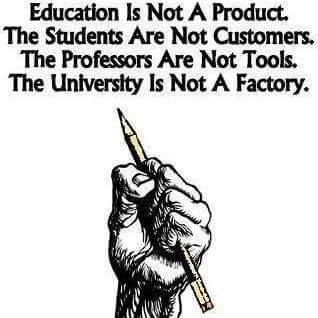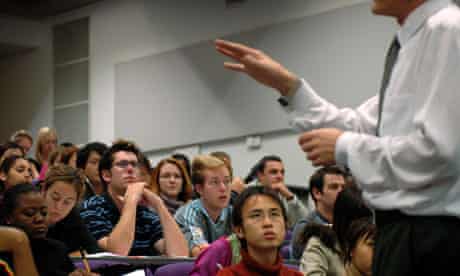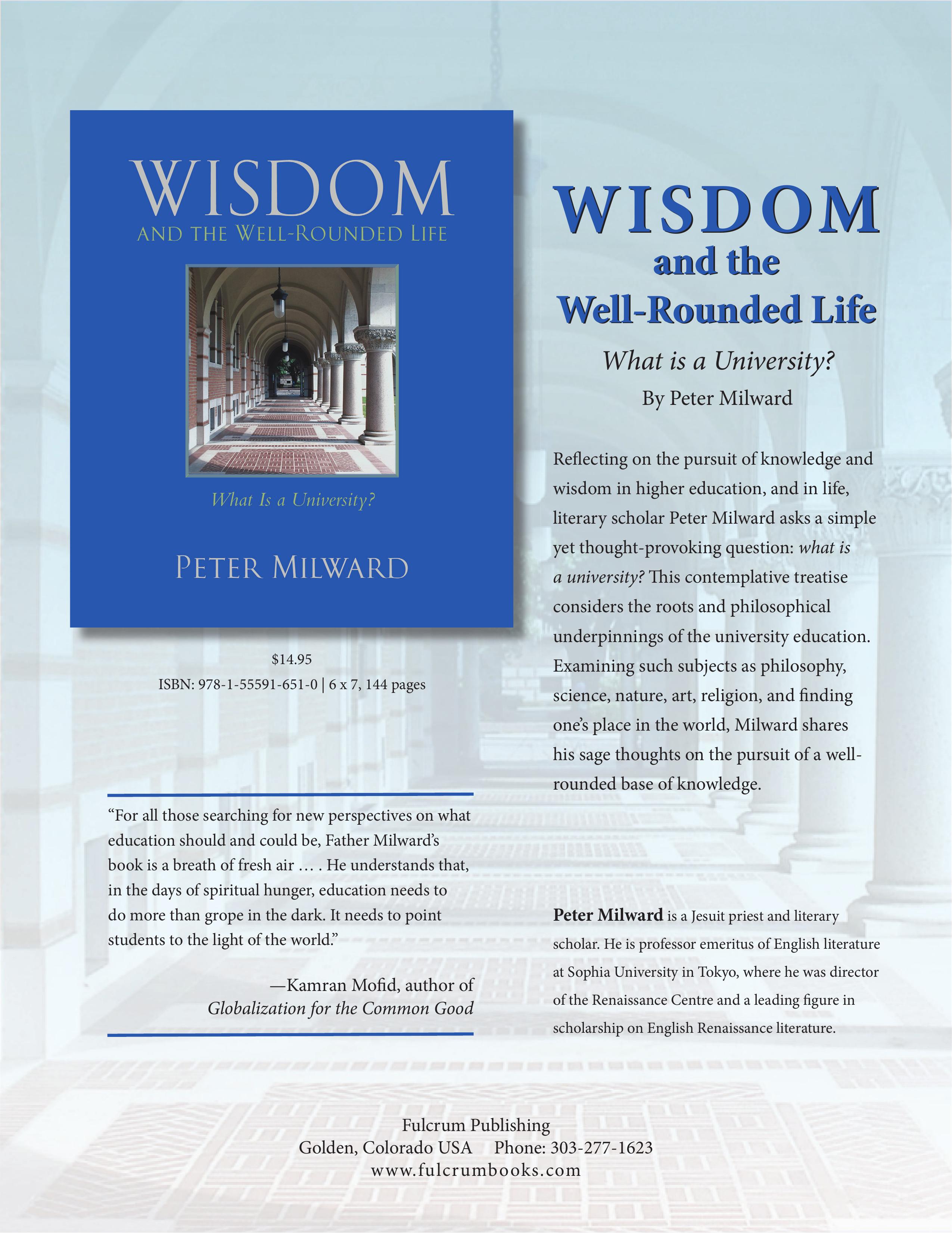First posted on 02 September 2013
Updated on 30 July 2020
Lest We Forget: Students Must Always be Learners, Logical, Critical, Free Thinkers. In short, Seekers of Wisdom. Never Customers or Consumers of Goods and Services!
Students are far more important than shoppers in a mall on a Black Friday shopping bonanza and no university on earth should ever be able to cheat them by telling them otherwise!!

Photo: printerest
‘A-level students: if you want to be a 'consumer', go to the mall’*
'The government would like university students to see themselves as 'consumers'.
But they should be proud first and foremost to be students.'- Prof. Stephen Curry, Imperial College, London

Photo: David Levene/Guardian
Dear A-level students
I hope when you collect your results this morning you discover that you have got the grades you were looking for, particularly if you are hoping to go to university. If it has all worked out, congratulations! You are about to embark on one of the most important experiences of your life. But please don't pitch up at university at the end of September behaving like a consumer. You will be something more complex, more challenging and more important: you will be a student. It is not the same thing at all.
Unfortunately for you, being a student is an expensive business these days. The coalition government, muttering darkly about austerity back in 2010 and claiming that the nation could no longer afford generous support for students, has cut funding to universities and tripled university fees to £9,000 per year. To sell the new fee regime the government placed a heavy emphasis on the promise that students paying the elevated fees would be at the heart of the system and effectively acquire the status of consumers with the purchasing power to drive up standards as universities chase for business in a reinvigorated market in higher education.
The transformation of students into consumers in this marketplace is also propelled by the growing mania for surveying their opinions. The National Student Survey (NSS) gathers anonymous opinions on final year students' experience of university and is incorporated into the byzantine calculations used by various national newspapers (including this one) for grading and ranking different institutions. And now the reputations of individual lecturers are to be calculated from anonymous and continuous polling by the newly established Rate Your Lecturer website.
Since the customer is always right and access to good information is necessary for efficient markets, who could possibly object to this bold new dawn for the nation's institutions of higher education? Too long obsessed with research prowess at the expense of their educational obligations, universities were overdue for a shake-up and who better to demand it than customers with expectations cranked up by higher fees?
If you fix your gaze rigidly on the path of that argument it has a certain beguiling logic. But I refuse to subscribe to the retail theory of higher education.
I hope that Rate Your Lecturer crashes and burns. I would be happy to see the NSS wither from loss of purpose. The anonymity afforded by such surveys may be essential for gathering frank opinions but, as anyone who has spent more than five minutes on the internet knows, it is also a powerful attractant for trolls and whingers and trivialisers. We would do well to treat such "data" with extreme caution.
It's not that I am uninterested in the views of students; quite the reverse. But I would much rather learn about them from a conversation than from yet another survey (surveys are already an established mechanism for getting student feedback within many university departments).
I am reassured that some student leaders have seen through the government's false logic. As Rachel Wenstone, the vice-president for higher education at the National Union of Students (NUS) has observed, going to university is fundamentally different from buying clothes or gadgets on the High Street: "The things that are fundamental to a market, for example, competition, don't work in education. It's collaboration and co-production that are key to universities."
As a professor closely involved in undergraduate education, I share that vision completely. The consumerist and survey culture creates an inappropriate divide. In retail the customer may always be right but education doesn't fit that mould. Consumer-minded students are too often looking to plot the easiest route through their coursework to a degree certificate; as a result they are quick to find fault and slow to consider their own share in the responsibility for their learning. But the best universities aim to stretch and challenge their students, to work them hard and, from time to time, push them well outside their comfort zones. That may not always be a pleasant experience, but it's worth it.
To work effectively that process has to involve cooperation, understanding and courtesy on both sides. So when you get to university I would urge you to talk to your lecturers and professors. Get to know them. They are not shopkeepers, whose sole duty is to serve you. Most will be juggling teaching with research programmes and other administrative roles. But equally, don't be too much in awe (like the student of mine who could not imagine that a professor might travel to work on the bus) and don't be shy of quizzing and challenging them. Most will have a wealth of experience to share. They are what you might call "professional students" who have understood the most important lesson that university has to teach: that you should never stop learning.
Oh, and don't spend all your time studying at university. Make sure to have a bloody good time as well.- *This article by Stephen Curry was first published in The Guardian on 15 August 2013
Don't turn students into consumers – the US proves it's a recipe for disaster

Photo: Bebeto Matthews/AP/Guardian
'Americans embraced the marketisation of higher education, with profit-making colleges and debt-laden customers.
The result has been corruption and failure.'
Towards an Education worth Believing In
“Education is the foundation for a good and fulfilling life, setting the individual on a path of personal fulfilment, economic security and societal contribution. Today the world of knowledge and competence is in a constant state of flux. The same can be said for the universe of visions, aspirations, and dreams. For many centuries it had been considered that education in general and universities in particular were responsible for the moral and social development of students and for bringing together diverse groups for the common good. Is this still the case?”… Continue to read
A World Guided by Wisdom is the sure path to a Life Full of Meaning.
"Where is the Life we have lost in living?
Where is the wisdom we have lost in knowledge?
Where is the knowledge we have lost in information?"-T.S. Eliot
'Knowledge Comes But Wisdom Lingers.'
Lack of wisdom is the beginning of all evil and the downfall of all civilisations. We need wisdom in all we do in our entire life endeavors.
Wisdom enables and empowers us to imagine better, a better life, a better world.
My recommended book of Wisdom that will change you and your understanding of what Education is or it should be forever.
Wisdom and the Well-Rounded Life: What Is a University?

'Reflecting on the pursuit of knowledge and wisdom in higher education and in life, this thoughtful treatise considers the roots and philosophical underpinnings of university education. Examining such subjects as philosophy, science, nature, art, religion, and finding one's place in the world, Peter Milward shares his sage thoughts on obtaining a well-rounded base of knowledge.'
Read the Foreword and more details about What is a University HERE
And this can happen when education is all about knowledge and information and has nothing to do with wisdom!!
Brexit, Trump and the failure of our universities to pursue wisdom …
Britain today and the Bankruptcy of Ideas, Vision and Values-less Education

